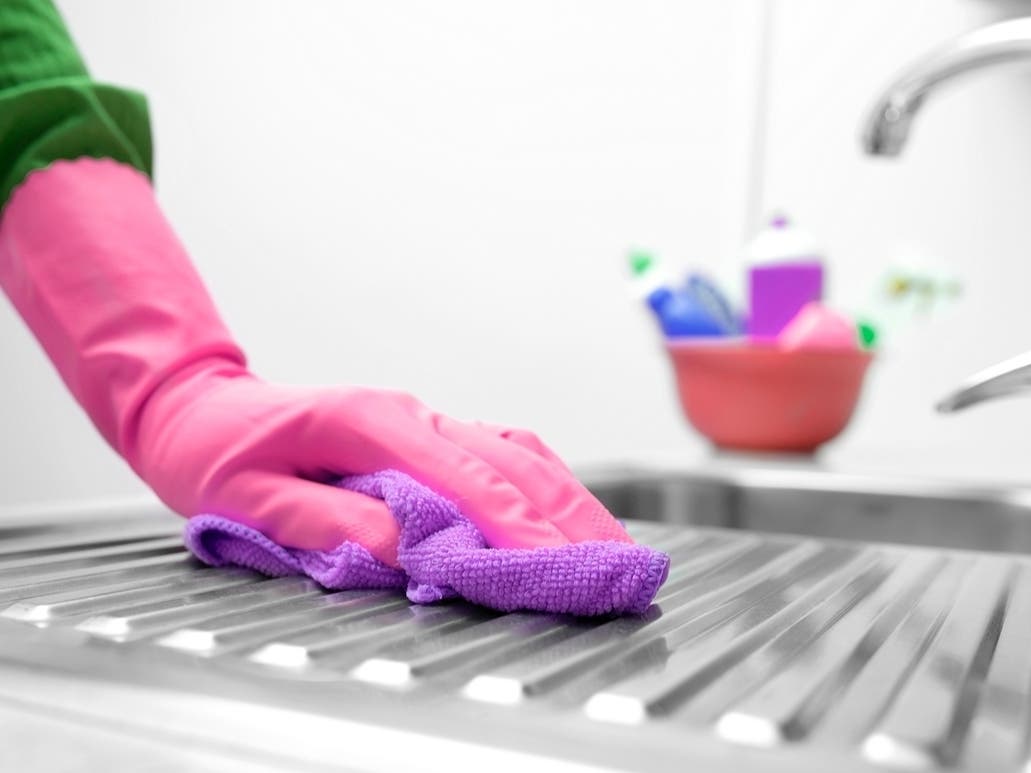Politics & Government
NJ Bill Would Beef Up Job Protections For House Cleaners, Health Aides
Many "domestic workers" are women, immigrants and people of color who work in private homes – far away from the public eye, advocates say.

WEST ORANGE, NJ — A proposed state law that would beef up job protections for “domestic workers” in New Jersey has taken a big step forward.
The bill known as the “New Jersey Domestic Workers’ Bill of Rights Act” survived a vote from the bipartisan Senate Budget and Appropriations Committee on Thursday, setting it up for an appearance before the full chamber.
Domestic workers include jobs such as child care providers, nannies, home health aides, gardeners and house cleaners. Many are women, immigrants and people of color who work in private homes – far away from the public eye, advocates say.
Find out what's happening in West Orangewith free, real-time updates from Patch.
According to the sponsors of S-723, the bill would establish stronger labor and employment protections for nearly 50,000 workers in New Jersey who provide domestic services, whether they are hourly or salaried, part-time or full-time. It would also apply to independent contractors.
Under the bill, the exclusion of domestic workers from the “Law Against Discrimination” and the “New Jersey State Wage and Hour Law” would be removed. The legislation would also provide privacy rights for domestic workers, establish standards for breaks, and require employers to enter into a written contract with the domestic workers they employ.
Find out what's happening in West Orangewith free, real-time updates from Patch.
A companion bill to S-273 has been introduced in the Assembly.
Here’s why the law is needed, its supporters say:
“According to a 2021 National Domestic Workers Alliance survey, over one-third of domestic workers do not get meal or rest breaks. Over three-fourths receive no pay if an employer cancels on them, even if the cancellation occurs after they arrive to work. Almost a quarter of domestic workers surveyed reported that they do not feel safe at work.”
“Domestic workers are essential workers, supporting a third of families in New Jersey who often need specialized care or other forms of domestic assistance,” said soon-to-retire Sen. Richard Codey, the primary sponsor of the proposed law in the Senate.
“However, [domestic workers] tend to earn among the lowest wages of all occupations and often fall victim to poor working conditions, wage theft, lack of formal contracts and unpredictable work schedules,” Codey added.
The bill’s critics, including the New Jersey Business and Industry Association (NJBIA), have insisted the proposed worker bill “still needs a hand,” however.
In November, the NJBIA predicted that the New Jersey Domestic Workers’ Bill of Rights Act would likely find new wings under the start of the legislative lame duck session in Trenton.
Despite the “good intentions” of the bill and the addition of some NJBIA-recommended amendments to it, the proposed law will likely bring challenges and burdens to employers if it crosses the finish line, the business advocacy group said.
“We have great appreciation for the amendments that have been made in this bill,” NJBIA Vice President of Government Affairs Elissa Frank said. “But we are seeking more important changes to provide better balance for employers, especially in the care economy, while also closing some loopholes in the legislation.”
The NJBIA has also contended that the bill ignores protections that already exist for domestic workers.
According to the New Jersey Department of Labor & Workforce Development, some rights that domestic workers currently have under state law include:
- In New Jersey, most domestic workers (except for casual and part-time babysitters), including home health care workers and live-in domestic workers, are entitled to the state minimum wage and overtime, which is 1.5 times your hourly rate of pay for hours worked over 40 hours/week. Example: If you are paid $20 an hour regularly, then you must be paid $30 an hour (1.5 x $20) for every hour you work in excess of 40 hours each week.
- Minimum wage is $13 per hour as of Jan. 1, 2022 and will increase annually to $15 per hour by 2024. For employers with fewer than 6 employees, minimum wage is $11.90 per hour as of Jan. 1, 2022 and will increase annually to $15 by 2026.
- An employer must schedule payday regularly, and employees must be paid at least twice a month and no more than 10 days after the end of the pay period.
- If employment ends, the worker must be paid by the next regularly scheduled payday.
Send local news tips and correction requests to [email protected]. Learn more about advertising on Patch here. Find out how to post announcements or events to your local Patch site. Don’t forget to visit the Patch West Orange Facebook page.
Get more local news delivered straight to your inbox. Sign up for free Patch newsletters and alerts.